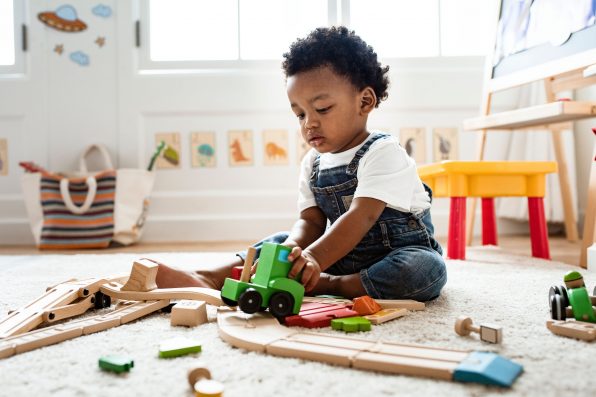During early childhood, open-ended free play is important for the growth and development of kids. However, many parents tend to favor scheduled play dates and structured classes. As a result, unstructured, independent play often takes a back seat.
Research has shown that over-scheduling kids in various classes, activities, and lessons can put too much pressure on them, which, in turn, can harm their health and happiness. So, instead of succumbing to a competitive mindset and pushing your child to achieve success at such a young age, schedule some time for them to play alone.
Solo playtime teaches children valuable lessons and helps them build the skills they need to become successful and sufficient adults. If you’re interested in the benefits of playing alone for children and how to get your kid to start playing by themselves, read on to learn more.
What Skills Does Independent Play Teach?
Playing alone will hone their abilities to problem-solve and manage their emotions. If a block tower falls over, they will have to figure out how to keep their cool and rebuild it on their own.
Another critical skill that independent play teaches is self-reliance. Playing alone helps kids learn to have fun independently, so they won’t need to rely on others for happiness and entertainment. Eventually, they will begin to understand that they won’t always have someone by their side at all times.
Of course, you’ll be there for your kids when they need you, but you can’t interact with them every second of the day. When your kid plays by themselves, they won’t count on you as much to direct their entertainment.
Independent play also fosters creativity. The time alone will allow them to put their imagination to use, drawing out scenarios with princesses, superheroes, and countless other possibilities that may have never come to fruition if it weren’t for the solo playtime.
In the future, they will be less likely to depend on electronic devices to keep boredom at bay. These are all skills that are critical to the overall development, health, and future success of your child.

Sign up for Chip Chick’s newsletter and get stories like this delivered to your inbox.


